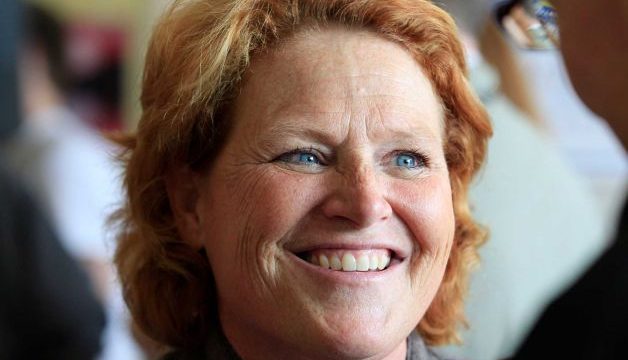Heidi Heitkamp Is Working Hard To Make Your Online Shopping Experience More Expensive

Here in North Dakota shoppers buying from Amazon.com must pay the state sales tax, but they don’t necessarily have to pay that tax if shopping at other online retailers. The reason is because Amazon has a physical presence in the state; part of their national operation is based in Grand Forks. States charging sales tax to retailers who have only a digital presence is a much trickier prospect.
But Senator Heidi Heitkamp, who once lost an effort to tax out-of-state businesses selling in North Dakota at the Supreme Court, is leading the charge to raise taxes on your online shopping experience. In fact, she has used her first official speech on the floor of the Senate to call for this tax hike.
“This legislation does not create new or increase existing taxes,” she claims while speaking in support of the misnamed Marketplace Fairness Act. “It simply would give states the right, if they want, to collect state and local sales and use taxes on internet purchases that they are already owed.”
Of course, the idea that local governments aren’t going cash in on a new tax revenue is ridiculous. If this legislation passes, your online shopping experience is going to get more expensive.
And why should it? The argument is that brick-and-mortar establishments operate at a competitive disadvantage with online retailers in that the brick-and-mortar stores have to charge sales taxes and the online retailers, for the most part, don’t. But brick-and-mortar stores have an advantage too. Customers don’t have to pay for shipping, and they get their items immediately.
Online retailers don’t have nearly the advantage some would like to think. “Forrester Research surveyed 4,500 U.S. adults online and found that in every major consumer category other than travel, shoppers said visiting a store served as the most important source of research before buying,” reported Wired recently. “The most recent U.S. Census Bureau figures still put e-commerce at little more than 5 percent of the country’s total retail sales.”
Brick-and-mortar stores also use government services – police, fire, roads, etc. – the online retailers don’t. You could argue that the companies that ship for the online retailers use those services, but those companies are also paying local fuel taxes, etc.
Put simply, this isn’t a “fairness” move. This is a revenue grab, and protectionism for brick-and-mortar retailers.







